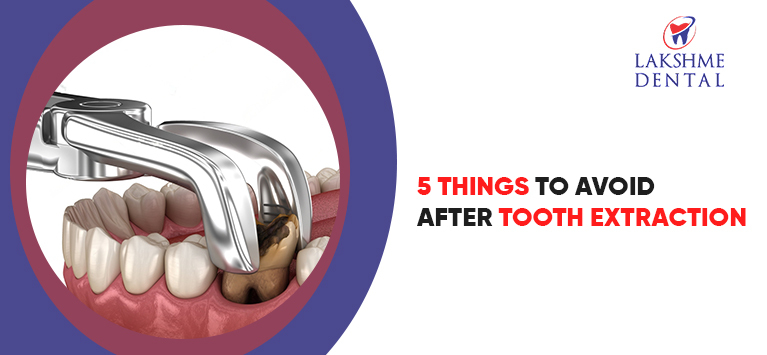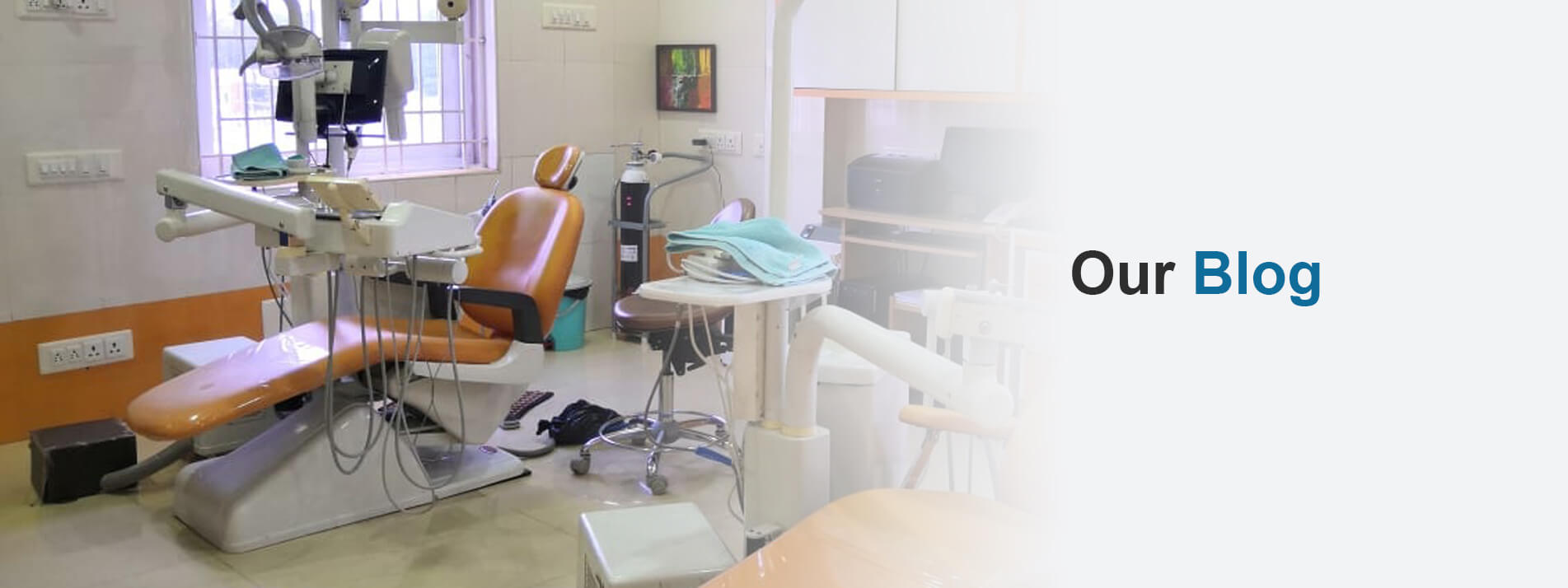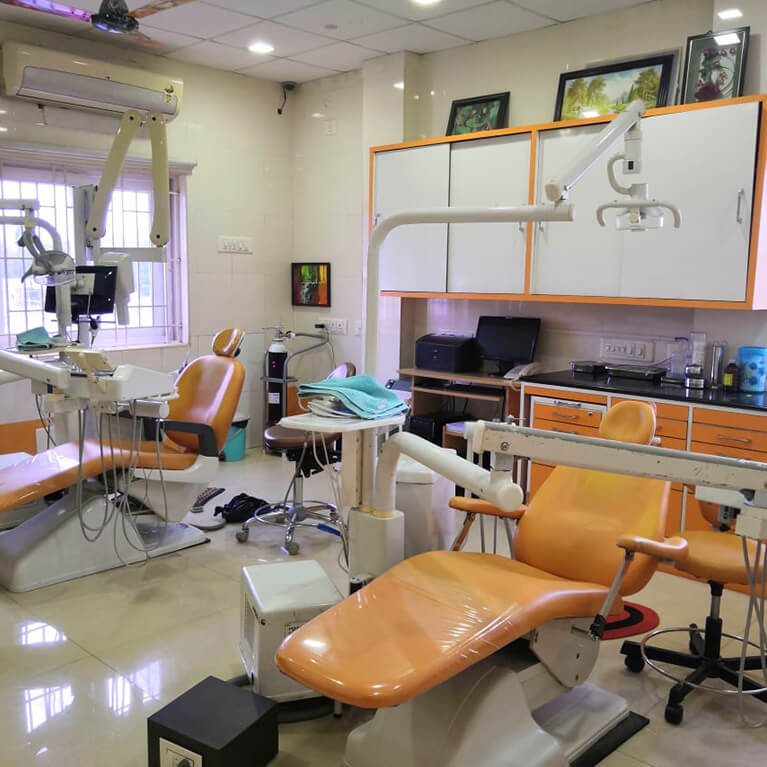
5 Things to Avoid After Tooth Extraction
Have you recently undergone a tooth extraction procedure? If your answer is yes, then you’re eager to ensure a smooth and speedy recovery. There are several reasons why tooth extraction becomes essential. Severe decay, infections, and overcrowding are among the common causes that might warrant the removal of a tooth. The process itself can be uncomfortable, and the duration of healing may differ from person to person.
Additionally, specific types of food can pose a risk to the incision site, potentially causing infection or injury. In this blog, we’ll discuss 5 essential things to avoid after tooth extraction to promote optimal healing and minimize discomfort. From dietary restrictions to oral hygiene tips, we’ve got you covered. So, dive into the dos and don’ts of post-extraction care!
5 Things You Must Avoid After Tooth Extraction
Here are five things that one should avoid if they have recently had their tooth extracted:
1. Avoid Smoking or Using Tobacco Products
Smoking or using tobacco products can significantly impede the healing process after a tooth extraction. Nicotine constricts blood vessels, reducing blood flow to the surgical site and delaying tissue repair. Additionally, smoking increases the risk of developing complications such as dry sockets, infection, and impaired wound healing.
Nicotine Restricts Blood Flow
Nicotine is a key component of tobacco products. It narrows blood vessels, diminishing the delivery of essential nutrients and oxygen to the extraction site.
Increased Risk of Complications
Smoking or using tobacco increases the likelihood of experiencing post-operative complications. This includes dry socket, infection, and delayed healing.
Prolonged Recovery Time
Patients who smoke often experience prolonged recovery times. Besides, additional interventions may be required to address complications.
Consult Your Dentist
If you’re a smoker, consult your dentist or oral surgeon. They will guide you on smoking cessation strategies and post-operative care.
By avoiding smoking or tobacco use, you can support a smoother recovery. Also, it reduces the risk of complications after tooth extraction.
2. Steer Clear of Hard or Chewy Foods
After a tooth extraction, it is crucial to avoid hard, crunchy, or chewy foods. Why? This is because these hard foods can irritate the surgical site or dislodge the blood clot. Opt for soft, easy-to-eat foods that won’t require excessive chewing or exertion.
Protect the Surgical Site
Hard or chewy foods can exert pressure on the extraction site. This will lead to discomfort, bleeding, or dislodgement of the blood clot.
Choose Soft Foods
Stick to a diet of soft, nutritious foods such as mashed potatoes, yogurt, smoothies, and soups. It would be best if you consumed them during the initial days following tooth extraction.
Avoid Crunchy Snacks
Since crunchy snacks can adhere to the surgical area, steer clear of them—for example, chips, nuts, popcorn, and sticky foods like caramel or taffy.
Gradually Introduce Solid Foods
As you continue to recover, slowly incorporate solid foods back into your diet. You can start with softer varieties and gradually transition to firmer textures.
Opt for soft, gentle foods to support healing and minimize discomfort during the recovery period.
3. Refrain from Strenuous Physical Activity
Avoid engaging in strenuous physical activity immediately after tooth extraction. If not, then it will increase blood pressure and blood flow to the surgical site. Furthermore, it can result in bleeding, swelling, and discomfort. Thus, it is essential to prioritize rest and avoid activities that may jeopardize your recovery.
Avoid Vigorous Exercise
Steer clear of activities that involve heavy lifting, intense physical exertion, or straining. Physical work can elevate blood pressure and disrupt the healing process.
Prioritize Rest
Allow your body ample time to rest and recuperate following tooth extraction. Avoid activities that may disrupt the surgical area, including bending over or sudden movements.
Minimize Swelling
Resting with your head elevated can help minimize postoperative swelling and discomfort. Use pillows to prop yourself up while sleeping or lounging.
Gradual Return to Activity
Wait for your dentist or oral surgeon to give you the green light. Once they say yes, then gradually reintroduce light exercise and physical activity into your routine. In the beginning, you can take gentle walks or do stretching exercises.
Refraining from strenuous physical activity to promote a smoother recovery. In addition to this, it will reduce the risk of complications following tooth extraction.
4. Avoid Rinsing or Spitting Vigorously
In the initial days following tooth extraction, it’s crucial to avoid rinsing your mouth or spitting forcefully. The reason is these actions can dislodge the blood clot and impede the healing process. Instead, opt for gentle rinsing techniques and minimize oral manipulation to promote optimal healing.
Protect the Blood Clot
The blood clot that forms in the extraction socket plays a vital role in the healing process. How? It protects the underlying bone and tissues. Avoid rinsing or spitting vigorously to prevent dislodging the clot.
Gentle Oral Hygiene
Instead of aggressive rinsing or spitting, gently rinse your mouth with a saltwater solution or prescribed mouthwash. Doing this will maintain oral hygiene and reduce the risk of infection.
Minimize Oral Manipulation
Refrain from poking the extraction site with your fingers, tongue, or dental instruments. Why follow this tip? As this can disrupt healing and increase the risk of complications.
Follow Dentist’s Instructions
Your dentist or oral surgeon will provide specific instructions on proper oral hygiene techniques and post-extraction care. Follow their guidance closely to support optimal healing.
By avoiding vigorous rinsing or spitting, you can safeguard the blood clots. And it will promote successful healing after tooth extraction.
5. Steer Clear of Alcohol-Based Mouthwashes
Alcohol-based mouthwashes can irritate the surgical site and delay the healing process after tooth extraction. Go for alcohol-free alternatives or prescribed mouth rinses recommended by your dentist. This will help you maintain oral hygiene without compromising your recovery.
Alcohol Irritation
Alcohol-based mouthwashes can cause stinging, burning, or irritation when applied to the extraction site. This can contribute to potentially exacerbating discomfort and delaying healing.
Choose Alcohol-Free Products
Look for alcohol-free mouthwash options that are gentle on sensitive tissues and provide effective antimicrobial benefits without causing undue irritation.
Use Prescribed Mouthwashes
Your dentist may prescribe a specialized mouthwash containing antibacterial or antimicrobial agents. Use them to prevent infection and support healing following tooth extraction.
With alcohol-free mouthwashes, you can maintain oral hygiene and support a smooth recovery after tooth extraction.
Finishing Up
Proper post-tooth extraction care is essential for promoting optimal healing and minimizing complications. Follow the above suggestions to support a smoother recovery and enjoy a faster return to normal activities. Remember to follow your dentist’s instructions closely. Plus, prioritize self-care during the recovery period. With patience and diligence, you will be back to your best smile in no time!










